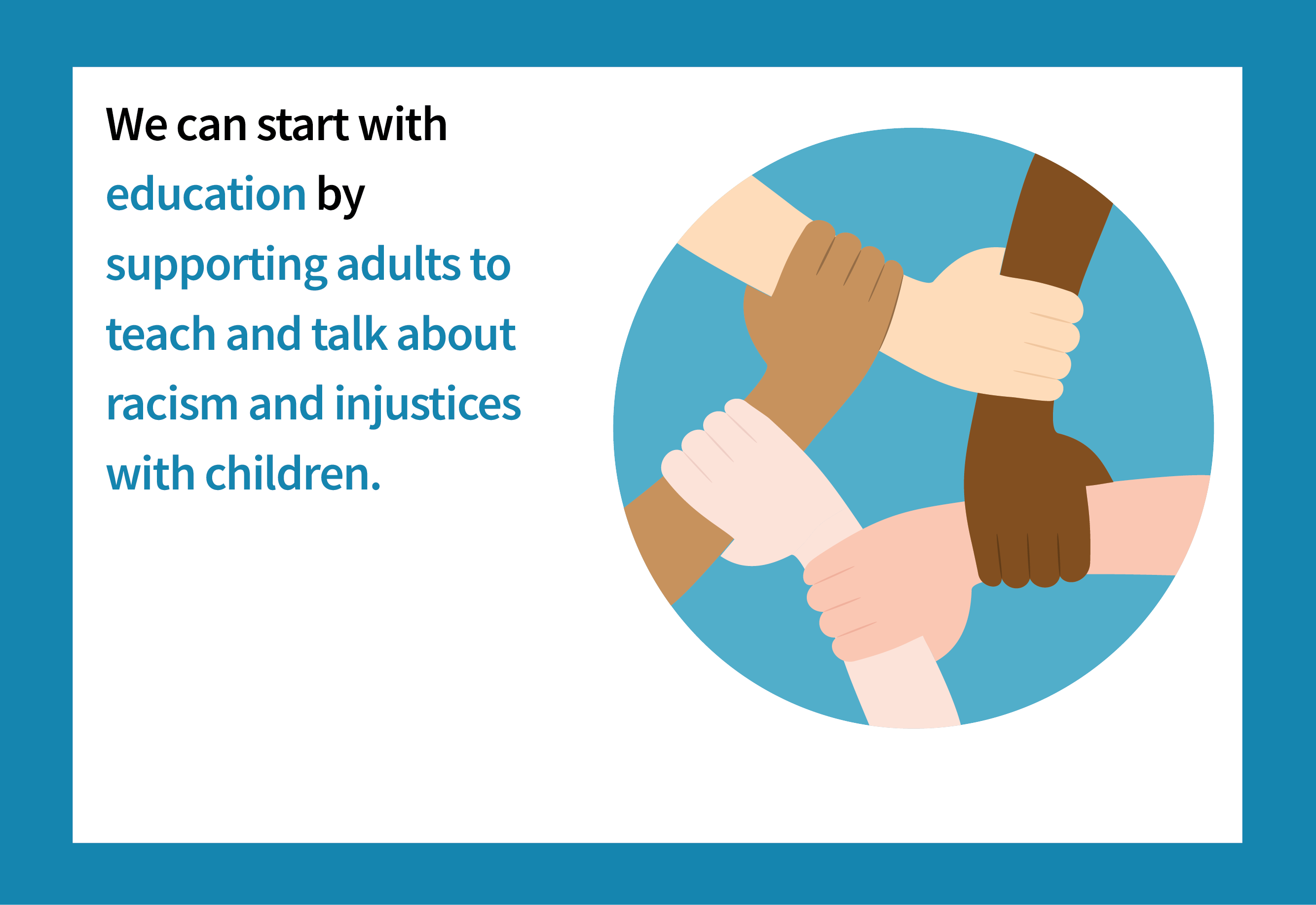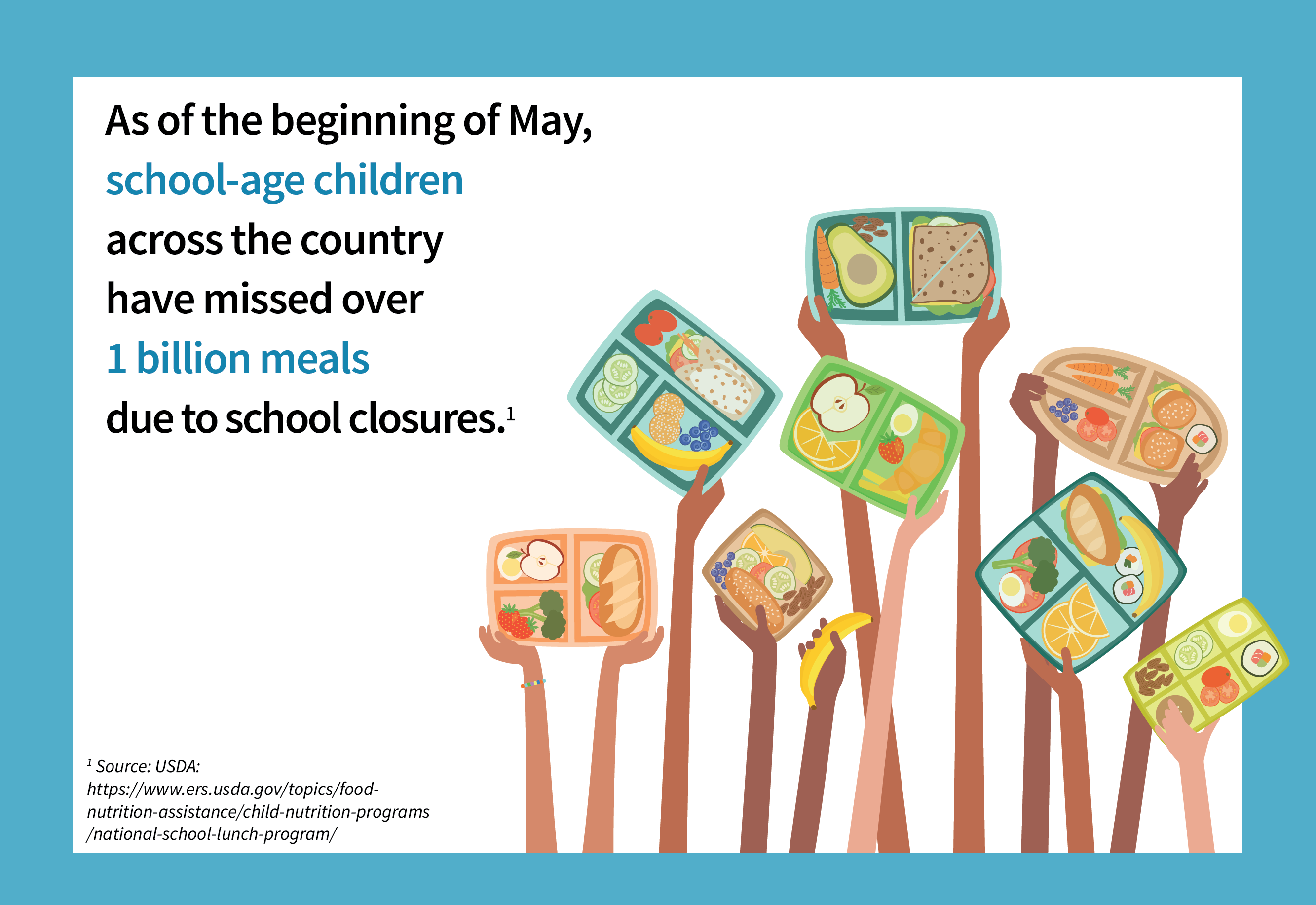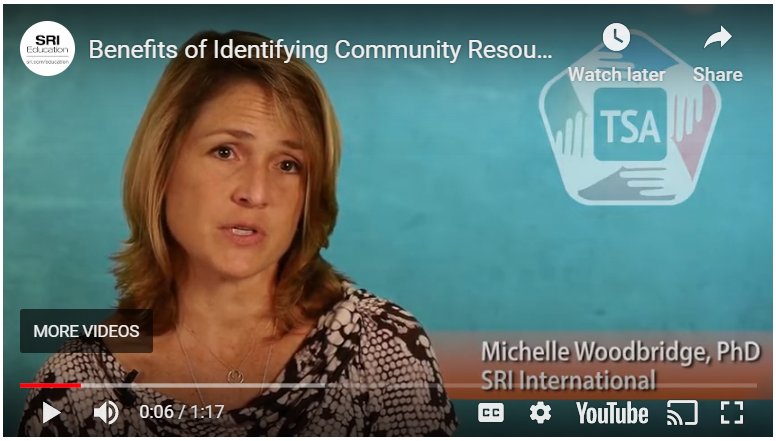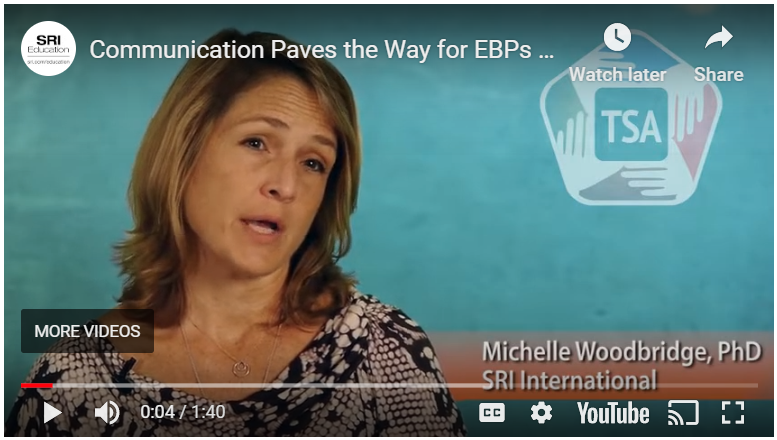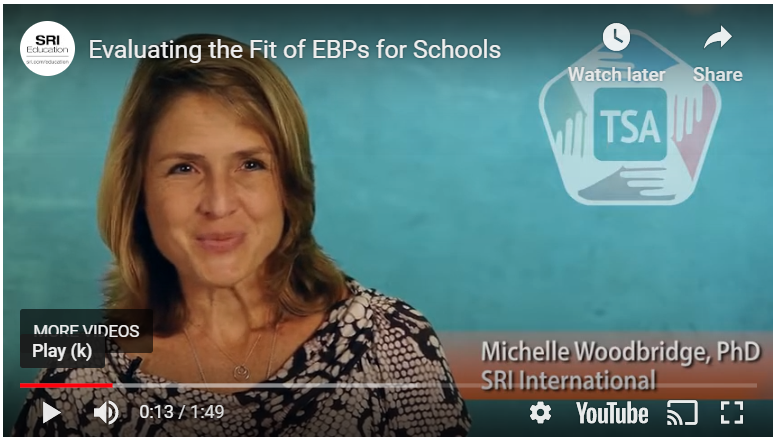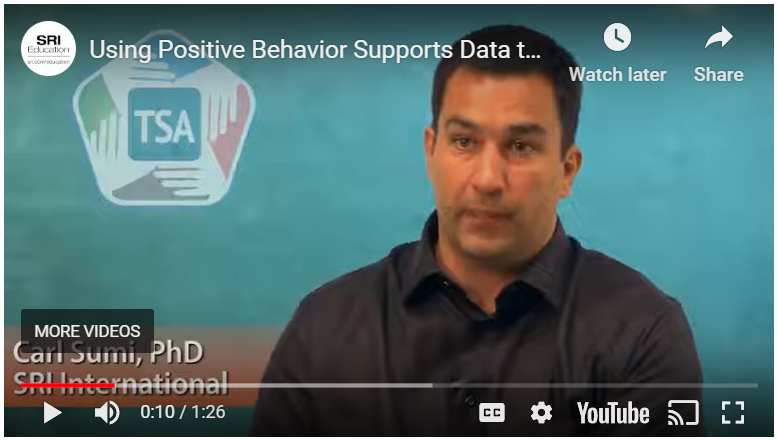Our Student Behavior Blog team at SRI Education is deeply heartbroken and outraged by the racism, brutality, and hatred that plague Black children, families, and individuals, not only with regard to recent events, but with recognition that these are pervasive issues they face in every moment of their lives. Consistent with our mission statement, we continue to strive to think about how we can conduct research, use data, and develop tools in meaningful ways that will reduce barriers and promote equity for students across our nation who continue to experience these longstanding injustices.
This award-winning 5 minute video from the Association for Positive Behavior Support (APBS) offers a clear explanation of Positive Behavior Supports as well as ways that families can use them at home. Positive Behavior Support at Home from Association for PBS on Vimeo.
On a typical day, schools provide low- or no-cost lunch to 29.7 million children. As the COVID -19 pandemic stretches on and the unemployment rate continues to skyrocket, many families are finding it increasingly challenging to provide meals for their children. National food assistance programs, community food banks, and local school districts have quickly stepped in to help ensure kids have consistent access to nutritious meals during these uncertain times.
Our latest blog post provides information about how families may secure food for their children, and how you, can support organizations assisting families in need.
Jennifer Donahue is a program administrator at the San Francisco Unified School District’s Student, Family and Community Support Department and has been a close partner of SRI’s Behavior Research team for many years. We recently interviewed Jennifer on what her experience has been and being involved in a researcher-practitioner partnership has benefited her programs.
Dr. Michelle Woodbridge (who has been studying prevention and intervention programs related to school-based mental health for more than 25 years) discusses the benefits of collecting and sharing information about local community resources with participants in research studies. This video was produced by the 3C Institute. Helpful resources on cognitive behavior interventions can be found on … Continue reading Local trauma-informed care resources empower communities
Dr. Carl Sumi is an expert in student behavioral research and interventions. This is Dr. Sumi’s advice for parents who suspect their child may be experiencing bullying in school. This video was produced by the 3C Institute. Helpful resources on cognitive behavior interventions can be found on the Cognitive Behavioral Intervention for Trauma in Schools (CBITS) … Continue reading What can parents do to prevent and address school bullying?
Researcher-practitioner partnerships in implementing & evaluating evidence-based programs in schools
Implementing and evaluating evidence-based programs (EBPs) in schools requires strong researcher-practitioner partnerships. Here’s what Dr. Michelle Woodbridge (who has been studying prevention and intervention programs related to school-based mental health for more than 25 years) says about the role of communication in implementing EBPs in schools. This video was produced by the 3C Institute. Helpful resources … Continue reading Researcher-practitioner partnerships in implementing & evaluating evidence-based programs in schools
What is it like to work for a nonprofit research center? See what Dr. Carl Sumi, Senior Principal Education Researcher at SRI International, says about working at a nonprofit research institute. This video was produced by the 3C Institute. Helpful resources on cognitive behavior interventions can be found on the Cognitive Behavioral Intervention for Trauma in … Continue reading Benefits of working at a nonprofit research institute vs. academic university
In this video, Dr. Michelle Woodbridge (who has been studying prevention and intervention programs related to school-based mental health for more than 25 years) discusses how to evaluate the fit of EBPs for schools. This video was produced by the 3C Institute. Additional resources on cognitive behavior interventions can be found on the Cognitive Behavioral … Continue reading How to determine the quality of evidence-based programs (EBP) for schools
In this video, Dr. Carl Sumi, an expert in student behavioral research and interventions, discusses the importance of using data to make decisions in PBIS schools. This video was produced by the 3C Institute. Helpful resources on cognitive behavior interventions can be found on the Cognitive Behavioral Intervention for Trauma in Schools (CBITS) program website. … Continue reading Using data to make better decisions in positive behavioral support programs

